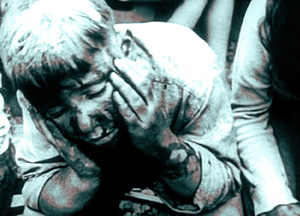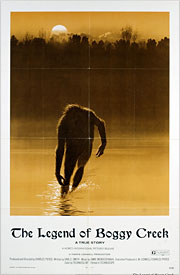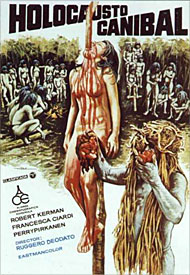Documentaries that Aren't, Blurring the Line Between Fact and Fiction
By
Bert Ehrmann
2006-11-03
Over the years a sort of sub film genera has emerged — the
faux documentary. These films aren't quite fiction nor docudrama,
they're something else altogether. Blending fictional elements
with a documentary style, these films can best be described as
the "fauxcumentary."
 Writer/director Peter Watkins practically invented the fauxcumentary
in 1965 with his film The War Game . In Watkins' film, tensions
between the U.S. and Soviet Union spill over to nuclear war, and
an unprepared people of Great Britain must deal with the fallout
of this shattering event.
Writer/director Peter Watkins practically invented the fauxcumentary
in 1965 with his film The War Game . In Watkins' film, tensions
between the U.S. and Soviet Union spill over to nuclear war, and
an unprepared people of Great Britain must deal with the fallout
of this shattering event.
Watkins' generation would have lived through the real bombings of the Nazi blitz during WWII and this first-hand realism shows in The War Game . The film is shot in a detached sort of style and looks as if it were assembled by some film crew in the future with access to archival footage documenting past events.
So controversial was The War Game on initial release the film wasn't shown on British television screens, what it was created for, for over 20 years. After the film was turned down for television audiences, The War Game was released as a feature film and won an Academy Award for Best Documentary Feature in 1966.
Watkins would also use the fauxcumentary style in another film of his, Punishment Park (1971). Here, a group of American dissidents in the near future are forced to choose between long prison sentences or a hike through Punishment Park to help train police and National Guardsmen on rounding other undesirables. Watkins camera follows the dissidents on their hellish trek through the park.
 The icon of 1970s fauxcumentaries is The Legend of Boggy Creek (1972). In
this movie, a film crew documents weird happenings around Boggy Creek
where some sort of creature has been terrorizing the population.
The whole movie cumulates with an attack by the creature on a home
of an unsuspecting family with the viewer at the center of the action. Genuine
creepiness pervades The Legend of Boggy Creek even if today
much of the film seems dated.
The icon of 1970s fauxcumentaries is The Legend of Boggy Creek (1972). In
this movie, a film crew documents weird happenings around Boggy Creek
where some sort of creature has been terrorizing the population.
The whole movie cumulates with an attack by the creature on a home
of an unsuspecting family with the viewer at the center of the action. Genuine
creepiness pervades The Legend of Boggy Creek even if today
much of the film seems dated.
Different from the work of Watkins, The Legend of Boggy Creek mixes the documentary style with filmed reenactments, to the point where the audience isn't quite sure what's real and what's reenacted. Which plays well in distorting the audience's perceptions of the film since, in reality, nothing depicted in the movie is real.
The bloodiest of all the fauxcumentaries is the cult-hit Cannibal Holocaust (1980), the one film that I stopped halfway through for being too disturbing even for "Iron Stomach Ehrmann." Here, a film crew that ventures into the Amazon to shoot a documentary on native tribes people turns up missing, and all that anyone is able to recover from their expedition are canisters of film. Cannibal Holocaust documents the crew filming their documentary, playing god with the locals and suffering the consequences when these people come looking for supper.
So evil are the film crew to the land, animals and peoples of the Amazon, I was actually rooting for the natives by the time I shut Cannibal Holocaust off.
 Writers/directors Daniel Myrick and Eduardo Sánchez
would go onto use the concept of "found footage" in their fauxcumentary The
Blair Witch Project in 1999 and, rather than having a film
few in U.S. would ever see, made a movie that grossed over $140 million
in theaters and would become a cult phenomena worldwide.
Writers/directors Daniel Myrick and Eduardo Sánchez
would go onto use the concept of "found footage" in their fauxcumentary The
Blair Witch Project in 1999 and, rather than having a film
few in U.S. would ever see, made a movie that grossed over $140 million
in theaters and would become a cult phenomena worldwide.
The fauxcumentary that resonates most today is This is Spinal Tap (1984). This classic movie documents the fall of Spinal Tap, a heavy metal band being left behind in a changing musical landscape. Shot tongue in cheek style, the film depicts how outlandish it can be backstage of a music tour and why amplifiers need to go to "eleven." A quote by David St. Hubbins (Michael McKean) so eloquently sums up This is Spinal Tap, "It's such a fine line between stupid, and clever." This is Spinal Tap is certainly more clever than stupid.
The core of the actors who comprised the Spinal Tap band is still making movies today. Their fauxcumentary A Mighty Wind (2003) was nominated for an Academy Award and their next movie For Your Consideration is due in theaters at the end of November.